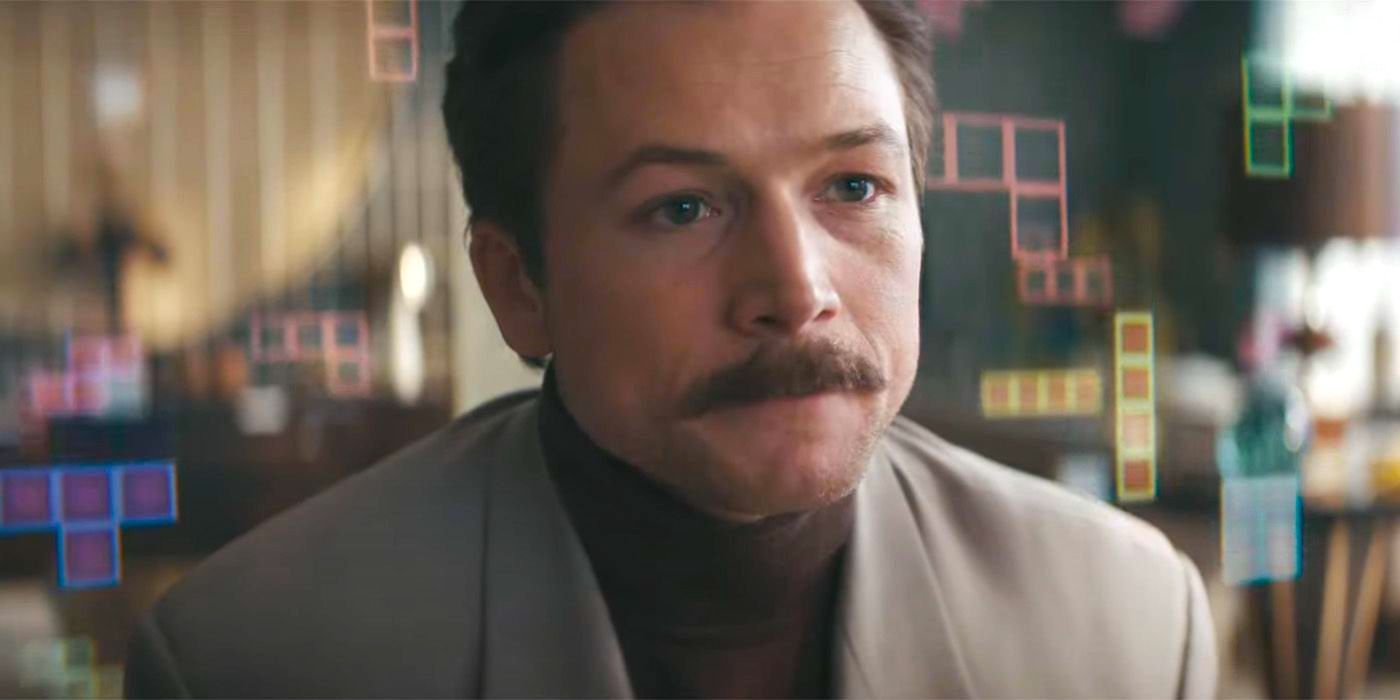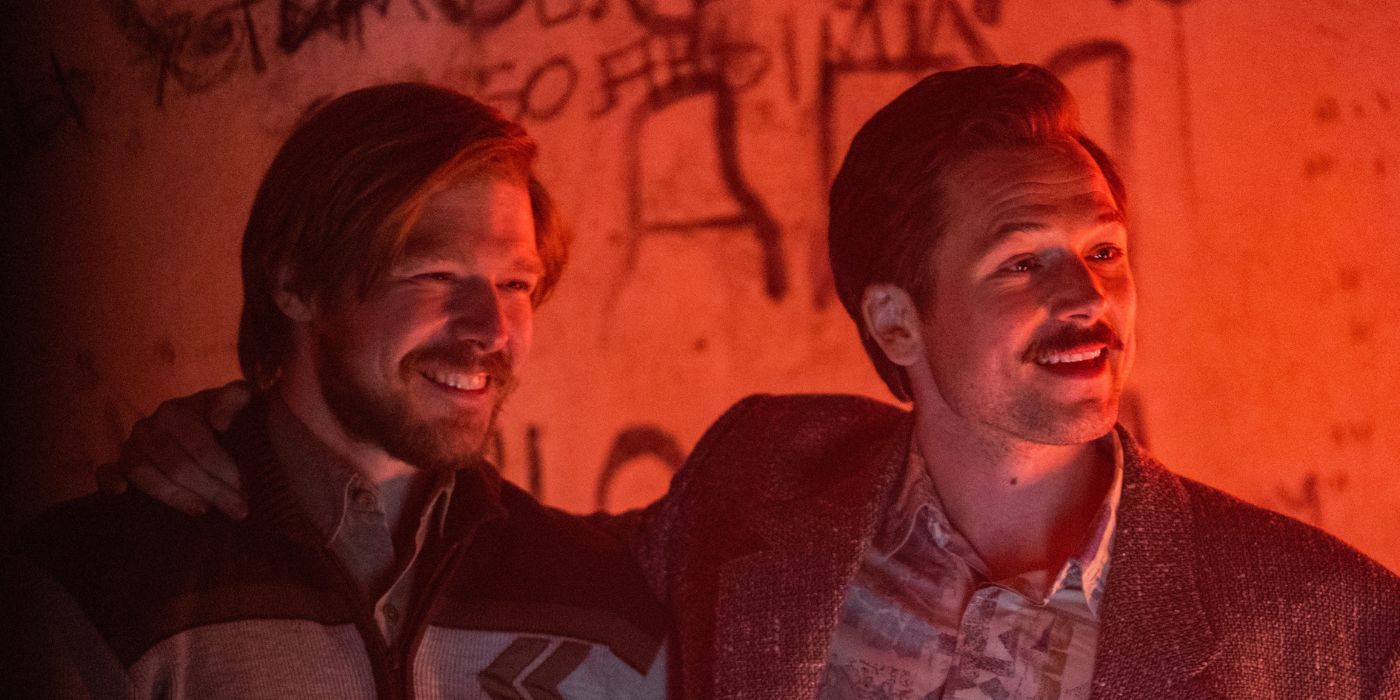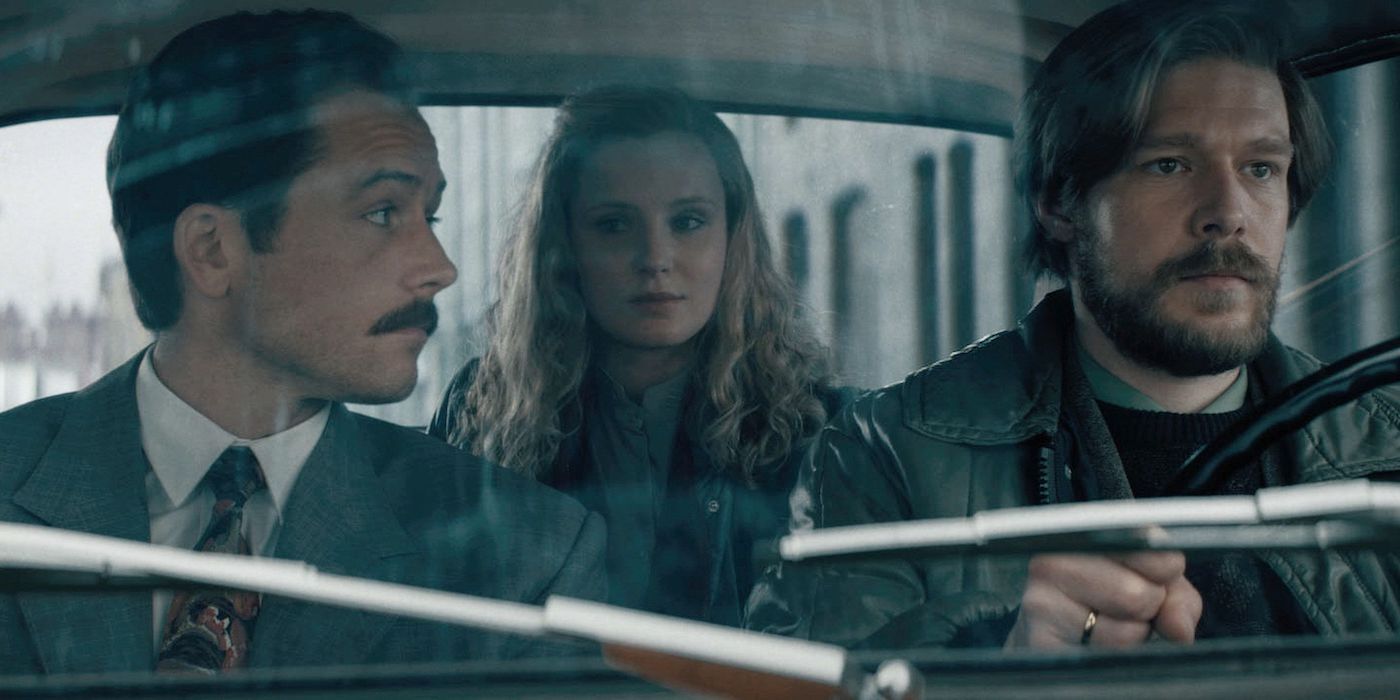Tetris might just be the most popular and important video game of all time. Since its creation in the mid-80s, Tetris has sold hundreds of millions of copies, been called one of the greatest games ever made by publication after publication, and is one of the few games that nearly every person on the planet can say they’ve played. Tetris is so iconic, it’s transcended video games, having been played on everything from T-shirts to skyscrapers. With little more than falling pieces made of four blocks each, creator Alexey Pajitnov truly changed the way we see video games.
Tetris also has a fascinating story behind it, one in which multiple major game companies fought over who could have the rights to this simple yet addictive puzzle game once it left the USSR. These blocks have a brilliant story behind them, one that Tetris, the new film from director Jon S. Baird (Stan & Ollie) and writer Noah Pink, bring to the film. But Tetris is brilliant because of its simplicity, and any added elements would ruin the unembellished beauty, and similarly, Baird and Pink’s film adds too many new elements that start to take away from what makes this story so intriguing to begin with.
Taron Egerton stars as Henk Rogers, a video game designer and salesman who plays a game of Tetris and almost immediately believes it to be the perfect game. Rogers and his wife Akemi (Ayane Nagabuchi) own Bullet-Proof Software, and Henk decides to put up everything he has to help Tetris a worldwide phenomenon. This journey will put him up against people with much more money and influence than he does, including entrepreneur Robert Maxwell (Roger Allam), his son Kevin Maxwell (Anthony Boyle), and the man willing to double-cross all of them for the rights, Robert Stein (Toby Jones). This attempt to bring Tetris to the world takes Rogers and the rest of these men to the USSR, where they will have to get the rights from the Soviet Union, while the game’s creator Alexy Pajitnov (Nikita Yefremov) is mostly out of the fold.
Tetris proves that truth is stranger than fiction, as the best parts of this story are the ones that stick closest to the truth. Pink’s script is great when it’s simply Rogers, Kevin Maxwell, and Stein all attempting to work with Russian computer company Elorg in order to get the rights. These scenes are little more than poring over paperwork, making slight changes, and these men attempting to get the upper-hand over their competitors, and in these moments, Tetris is kind of brilliant in its simplicity.
But Baird and Pink have larger ambitions, as they attempt to also explore the downfall of the USSR and the country’s relationship with the rest of the world that takes significant liberties with this story that even those not familiar with the story can spot as false. Tetris didn’t need much to spice up this story, but Baird and Pink add Russian double agents, car chases to airports out of the country, and comically over-the-top antagonists that could put Wario to shame. Pink’s script attempts to make Tetris a sign of future collapse for the country, the first of many bricks to fall, and the larger commentary on Russia and the world today is obvious and distracting.
Tetris also frequently falls into cliché through its additions. The film’s final moments attempt to make this feel like Argo, while Rogers’ family is only fleshed out as a way to give Henk even greater personal stakes outside the clear financial ones. As soon as we are told that one of Henk’s daughters has a music recital, we know he will inevitably miss it in his quest to bring Tetris to the masses, since we’ve seen this trope a million times. Especially in the third act, Tetris attempts to amp up the dangers and fear, and it is in these moments, we can tell that the story we are being told is false.
Which is a true shame, because the nitty-gritty details of Tetris’ true story is actually pretty engrossing. This is essentially a story about the business of distribution and publishing, but it really works when it sticks to the facts. For many of us, we know the history of this game, and the importance of someone like Nintendo in this game’s popularity, so the reveal of something like the Game Boy can feel game-changing, not just for Henk Rogers, but for the viewer as well. At times, it’s easy to see how sticking to the details could’ve almost made this feel like The Social Network but for video games. Unfortunately, there’s too much filler for this story to ever reach that possibility.
Beyond the clichés and the added elements to try and boost the drama, Tetris at its core works because the true story is inherently an interesting one, and when the film sticks to these details, it's at its best. Like a difficult game of Tetris, this film might fumble some of its pieces, but in the end, it's ultimately a satisfying experience.
Rating: B-
Tetris premiered at the 2023 SXSW Festival, and comes to Apple TV+ on March 31.



